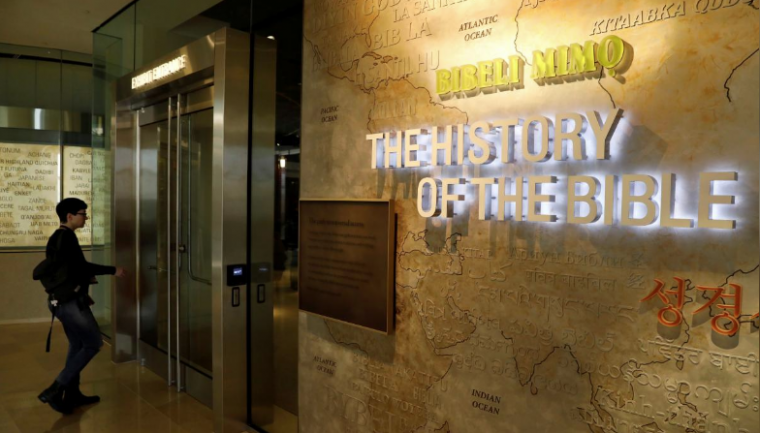Oxford professor at centre of mystery over Bible fragments arrested

An Oxford professor accused of selling ancient Bible fragments without permission has been arrested on suspicion of theft and fraud.
Dr Dirk Obbink has been at the centre of a mystery over papyrus fragments that came to be housed in the Museum of the Bible in Washington DC.
The Egypt Exploration Society (EES) said last October that 11 missing fragments from its Oxyrhynchus Papyri collection had been sold without authorisation and were now in the Museum of the Bible.
The museum said at the time that it had acquired the fragments "in good faith" and that it had a "commitment to ethical handling of all items in its care and its approach to collections research".
"We have collaborated with EES in the investigation, have shared all relevant documentation with them, and will continue to assist them in recovering other items that may have been removed without authorization from their holdings," said Dr Jeffrey Kloha, Chief Curatorial Officer at Museum of the Bible.
The EES' collection is stored at Oxford University, where Dr Obbink is an associate professor in papyrology and Greek literature.
The fragments alleged to have been stolen contain passages from the Bible, including parts of Genesis, Exodus and Romans.
Dr Obbink was suspended by Oxford University last October following an internal investigation.
He was arrested last month by officers from Thames Valley police after they received reports of an alleged theft, the Guardian reports.
The professor has denied any wrongdoing and claims that evidence against him has been "fabricated".
The EES has said that it is pursuing "the identification and recovery of other texts, or parts of texts, which have or may have been illicitly removed from its collection".
"Systematic checking of the EES collection will be a long process because of its size. Meanwhile, our primary aim remains the authoritative publication for public benefit of the texts of all types in our collection," it said.
"We cannot comment here on any broader legal issues arising from these findings, except to note that they are under consideration by all the institutions concerned."











